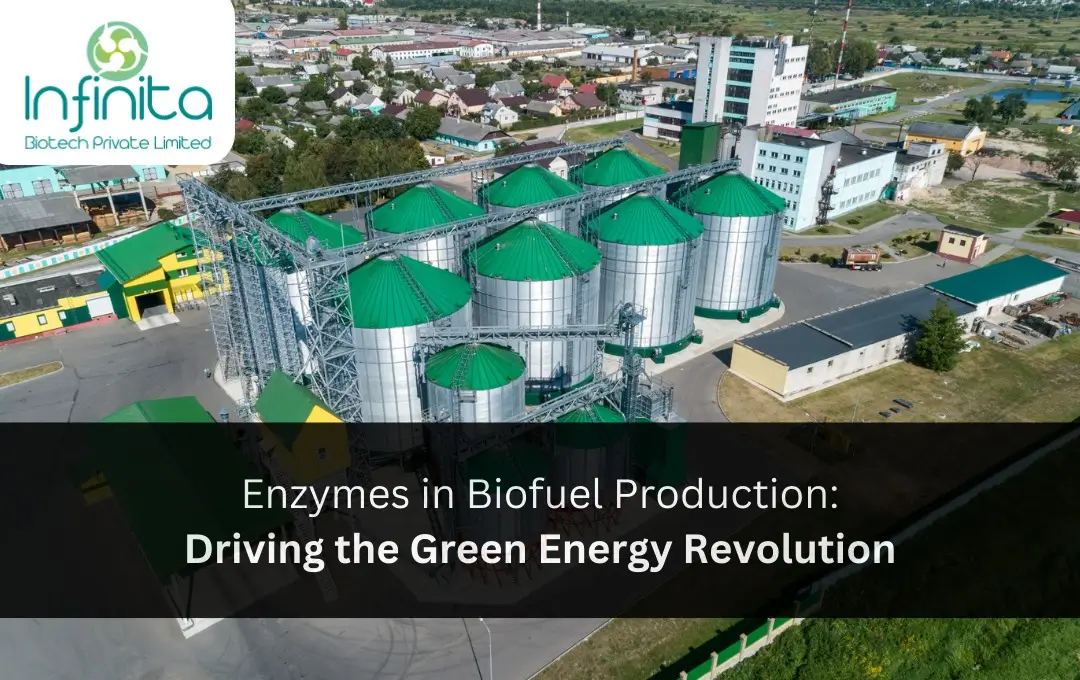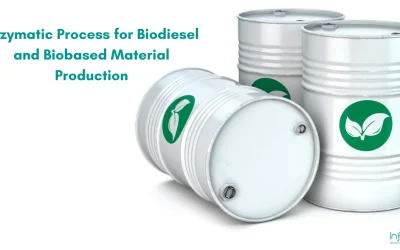As the world seeks cleaner and more sustainable energy solutions, biofuels have emerged as a key player in reducing dependence on fossil fuels. However, efficient biofuel production requires innovative technologies that can maximize yield while minimizing cost and environmental impact. Among these technologies, enzymes have proven to be indispensable, revolutionizing how biomass is converted into usable energy.
Understanding the Role of Enzymes in Biofuel Production
Enzymes are biological catalysts that accelerate chemical reactions, making complex processes faster and more efficient. In the context of biofuel production, enzymes break down plant-based materials such as cellulose, hemicellulose, and starch into fermentable sugars. These sugars are then converted into bioethanol, biodiesel, or biogas through microbial fermentation.
Without enzymes, the breakdown of biomass would be slow, inefficient, and costly, making large-scale biofuel production economically unviable. By enhancing the conversion process, enzymes increase both the efficiency and sustainability of biofuel generation.
Types of Enzymes Used in Biofuel Production
Different types of enzymes are used depending on the type of biomass and the desired biofuel:
- Cellulases: Break down cellulose fibers found in plant cell walls into glucose, a key sugar for fermentation.
- Hemicellulases: Target hemicellulose, a complex sugar polymer, releasing additional fermentable sugars.
- Amylases: Convert starch-rich crops like corn and barley into simple sugars suitable for ethanol production.
- Lipases: Facilitate the breakdown of oils and fats for biodiesel production.
- Xylanases: Specialize in degrading xylan, a major component of hemicellulose, into xylose and other simple sugars. Their action enhances the release of fermentable sugars from agricultural residues and woody biomass, improving overall efficiency of bioethanol production.
By combining these enzymes strategically, biofuel producers can achieve higher yields from various feedstocks, including agricultural residues, forestry waste, and energy crops.
Advantages of Enzyme-Driven Biofuel Production
Incorporating enzymes into biofuel production processes offers multiple benefits:
- Increased Yield: Enzymes break down biomass more completely, releasing more fermentable sugars and ultimately producing more biofuel per unit of raw material.
- Cost Efficiency: Improved conversion efficiency reduces the need for additional processing steps, lowering overall production costs.
- Environmental Sustainability: Enzyme-assisted processes require less energy and chemicals compared to traditional methods, minimizing the environmental footprint.
- Versatility: Enzymes can process a wide range of feedstocks, from dedicated energy crops to agricultural residues, enhancing the flexibility of biofuel production.
Biofuel Production from Lignocellulosic Biomass
One of the most promising areas for enzyme application is lignocellulosic biomass, which includes materials such as corn stover, wheat straw, and wood chips. These materials are abundant, renewable, and do not compete with food crops, making them ideal for sustainable biofuel production.
However, lignocellulose is highly resistant to breakdown due to its rigid structure. Here, cellulases and hemicellulases play a critical role, hydrolyzing the complex fibers into fermentable sugars. When paired with advanced fermentation techniques, this enzymatic approach can convert otherwise unusable biomass into high-quality biofuels.
Innovations Driving the Enzyme Revolution
Recent advancements in biotechnology are enhancing the efficiency of enzyme-driven biofuel production. Genetic engineering has enabled the development of enzymes that are more robust, faster-acting, and capable of operating under industrial conditions such as high temperature or varying pH levels.
Additionally, enzyme immobilization techniques allow for the reuse of enzymes across multiple production cycles, further improving cost-effectiveness and sustainability. These innovations are helping bridge the gap between laboratory research and large-scale commercial biofuel production.
Challenges and the Path Forward
Despite their advantages, enzyme-based biofuel production faces challenges. Enzymes can be expensive to produce, and certain biomass types require complex pretreatment steps before enzymatic hydrolysis. Ongoing research focuses on reducing enzyme costs, improving stability, and developing tailored enzyme blends for different feedstocks.
As these challenges are addressed, enzyme-assisted biofuel production is expected to become a cornerstone of the green energy revolution, offering a renewable alternative to fossil fuels that is both economically viable and environmentally responsible.
Conclusion
Enzymes are transforming biofuel production by making the conversion of plant-based materials into energy faster, more efficient, and sustainable. From breaking down complex lignocellulosic biomass to enhancing ethanol and biodiesel yields, these biological catalysts are at the heart of a green energy revolution.
As technological advancements continue to improve enzyme efficiency and cost-effectiveness, the future of biofuel production looks promising. By integrating enzymes into industrial biofuel processes, the world can move closer to a sustainable energy landscape, reducing reliance on fossil fuels and supporting a cleaner, greener future.

 Summarize this Article with AI
Summarize this Article with AI



